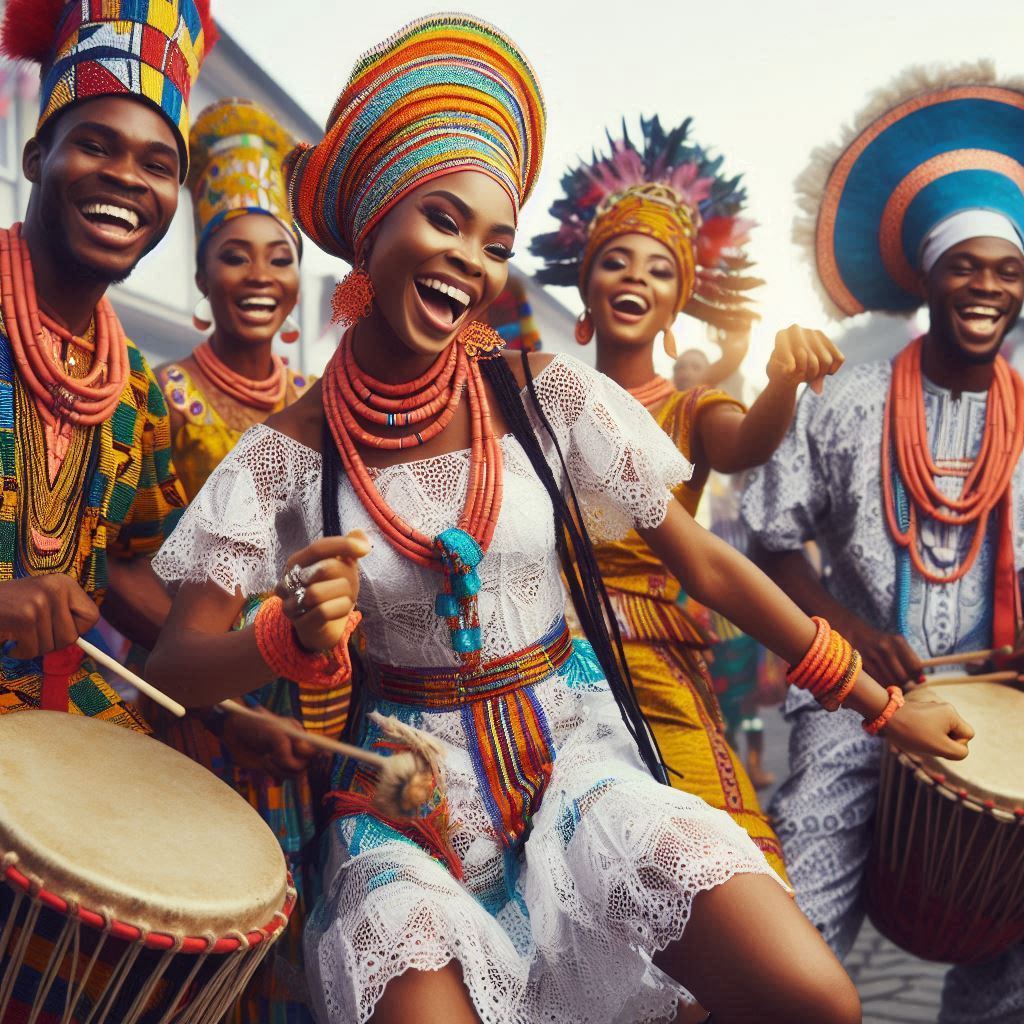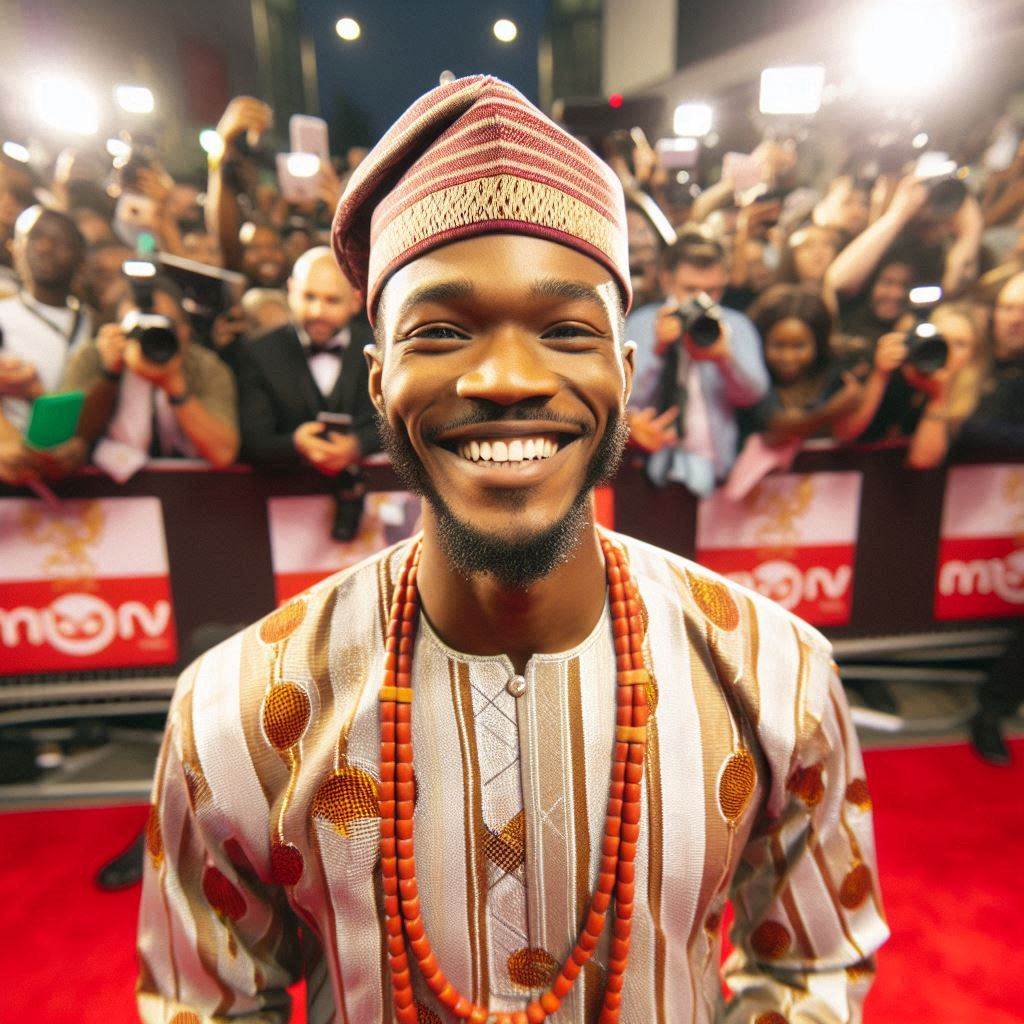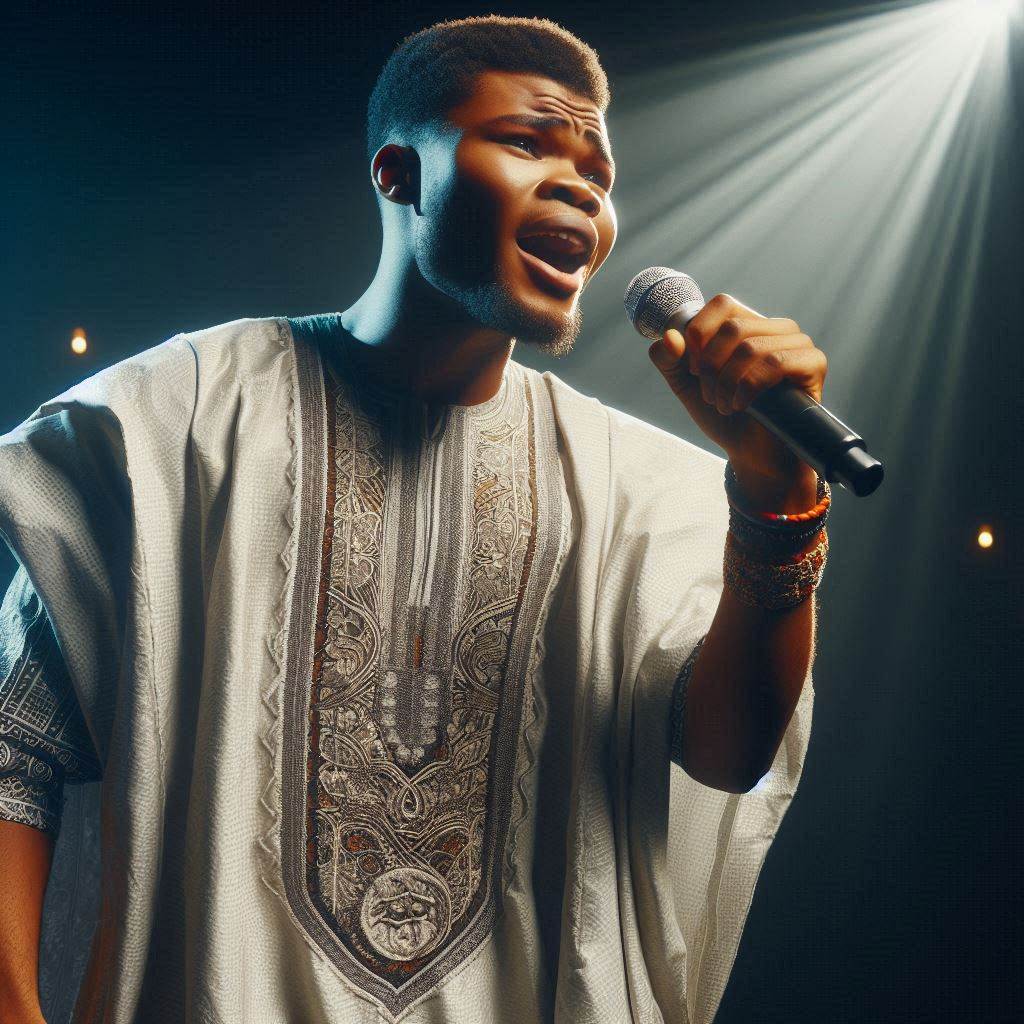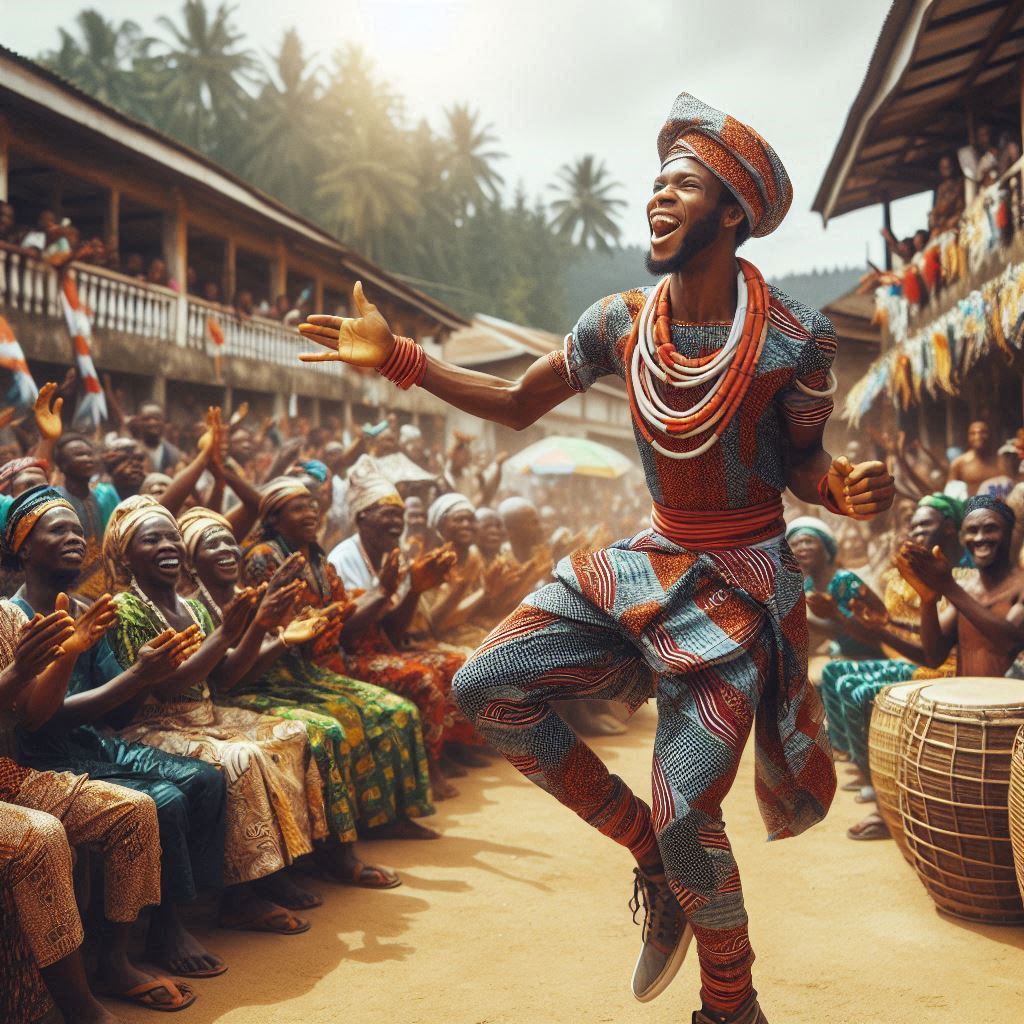Introduction
Nigerian performing arts hold a vital place in the country’s rich cultural tapestry. These arts encompass music, dance, theatre, and film, each deeply rooted in tradition.
Over time, they have evolved, reflecting Nigeria’s diverse heritage and modern influences.
Significance of Nigerian Performing Arts
Performing arts in Nigeria are not just for entertainment. They play a crucial role in preserving cultural heritage and storytelling.
They are also used for social commentary, reflecting societal issues and aspirations. Through performing arts, Nigerians express their identities, histories, and dreams.
Cultural Preservation and Storytelling
Nigerian performing arts are a repository of traditional knowledge and customs. Through dance and music, stories of ancient times are passed down generations.
They ensure that the youth remain connected to their roots. Performances often depict historical events and moral lessons, keeping the past alive in vibrant ways.
Social Commentary
Performing arts in Nigeria are a powerful tool for social change. Artists use their platforms to address issues like corruption, inequality, and human rights.
They inspire dialogue and action. This tradition of using the arts for advocacy has deep historical roots and continues to evolve.
Key Figures in Nigerian Performing Arts
Several individuals have significantly shaped Nigerian performing arts. Their contributions have elevated the country’s cultural profile globally. Here, we highlight a few of these influential figures.
Hubert Ogunde
Hubert Ogunde is often called the father of Nigerian theatre. He founded the first professional theatre company in Nigeria. His works combined traditional themes with contemporary issues.
Ogunde’s plays were known for their political and social commentary. He used theatre to challenge colonial rule and advocate for independence.
Fela Kuti
Fela Kuti was a pioneering force in Afrobeat music. He combined traditional African rhythms with jazz and funk. Fela’s music was politically charged, criticizing government corruption and social injustices.
His legacy lives on through his music and the annual Felabration festival.
Chinua Achebe
Chinua Achebe, while best known as a novelist, also made significant contributions to Nigerian theatre. His plays, like his novels, focused on the clash between traditional and modern values.
Achebe’s works have been performed on stages worldwide, showcasing Nigerian culture to a global audience.
Nike Davies-Okundaye
Nike Davies-Okundaye is a renowned artist and cultural ambassador. She has significantly promoted Nigerian textile art and traditional dance.
Nike has established several art centers, preserving and teaching traditional crafts. Her efforts have empowered many Nigerian women through arts education.
Nollywood Pioneers
The Nigerian film industry, Nollywood, has produced many influential figures. Directors like Tunde Kelani and actors like Genevieve Nnaji have brought Nigerian stories to a global audience.
Nollywood is now one of the largest film industries in the world. These pioneers have played a crucial role in its growth.
In a nutshell, Nigerian performing arts are a dynamic and integral part of the country’s cultural identity. Through music, theatre, dance, and film, Nigerian artists continue to preserve traditions, inspire change, and entertain.
The key figures mentioned here are just a few of the many who have shaped this vibrant landscape. Their contributions ensure that Nigerian performing arts remain a powerful and evolving force.
Fela Kuti: The Pioneer of Afrobeat
Background Information on Fela Kuti
Fela Kuti was born on October 15, 1938, in Abeokuta, Nigeria. He hailed from a prominent family. His mother was a feminist and activist, and his father was an Anglican minister.
Fela studied music in London, where he formed his first band, Koola Lobitos. Influenced by jazz and highlife, his unique style began to take shape. He returned to Nigeria in the mid-1960s, ready to revolutionize the music scene.
Contributions to Nigerian Music and Afrobeat Genre
Fela Kuti is the founding father of the Afrobeat genre. He combined traditional Nigerian music with jazz, funk, and highlife. Fela’s music often featured complex rhythms, electric instruments, and powerful horn sections.
His lyrics were politically charged, addressing social issues and government corruption. He used music as a weapon to challenge Nigeria’s military regimes.
Fela’s nightclub, the Afrika Shrine, became a cultural and political hub. His band, Africa ’70, and later Egypt ’80, included some of Nigeria’s finest musicians.
Through his innovative compositions, Fela redefined Nigerian music and introduced Afrobeat to the world.
Legacy and Impact on Nigerian Culture and Music Industry
Fela Kuti’s legacy in Nigerian music and culture is profound. He inspired countless musicians both in Nigeria and internationally. His fearless activism through music made him a symbol of resistance and freedom.
Despite facing government harassment and imprisonment, Fela remained unapologetic and outspoken. His Afrika Shrine continues to be a significant cultural landmark in Lagos.
The annual Felabration festival celebrates his life and music, attracting fans worldwide. His children, particularly Femi and Seun Kuti, have carried on his musical legacy.
They continue to perform and promote Afrobeat globally. Fela’s influence is evident in contemporary Nigerian music and the global music scene.
His fusion of African rhythms with Western styles paved the way for modern Afrobeat artists. Fela’s impact transcends music; he is also a cultural icon and symbol of defiance.
His life and work continue to inspire movements for social justice and change. Through his artistry and activism, Fela Kuti remains a towering figure in Nigerian history.
In essence, Fela Kuti’s contributions to Nigerian music and culture are unparalleled. As the creator of Afrobeat, he changed the course of Nigerian music.
His bold stance against oppression and corruption resonated with many. Fela’s legacy lives on through his music, his family, and the countless artists he inspired.
His enduring impact on the Nigerian music industry and culture is a testament to his genius. Fela Kuti will always be remembered as a revolutionary artist and fearless activist.
His life’s work continues to influence and inspire new generations. Fela’s spirit of defiance and creativity is a beacon for all who seek change through art.
Read: How to Start a Private Psychology Practice in Nigeria
Joke Silva
Joke Silva is a renowned Nigerian actress, director, and businesswoman who has made a significant impact on the Nigerian performing arts industry.
Overview of Joke Silva’s Career
Joke Silva began her acting career in the late 1970s, and she quickly rose to prominence in Nigerian theater and film. She is known for her versatile acting skills and ability to convincingly portray a wide range of characters.
She has appeared in numerous stage plays, movies, and television shows, captivating audiences with her captivating performances. Some of her most notable works include “Violated,” “Hear Word! Naija Women Talk True,” and “Phone Swap.”
Her dedication to her craft and commitment to excellence have earned her the reputation as one of the most talented actresses in Nigeria. Joke Silva continues to inspire aspiring actors with her passion for the performing arts.
Influence on Nigerian Acting
Joke Silva has been a trailblazer in Nigerian acting, breaking barriers and challenging traditional gender roles in the industry. She has paved the way for women to take on more diverse and complex roles in Nigerian theater and film.
Her portrayal of strong, independent female characters has empowered women both on and off the stage.
Joke Silva’s influence extends beyond her acting skills, as she is also a mentor to many aspiring actors, guiding them towards success in the industry.
By raising awareness about social issues through her performances, Joke Silva has used her platform to advocate for change and promote gender equality in Nigerian society.
She continues to be a role model for young actors and actresses, inspiring them to follow their dreams and make a difference through their art.
Awards and Recognition
Throughout her illustrious career, Joke Silva has received numerous awards and accolades for her outstanding contributions to the performing arts. She has been recognized for her exceptional talent, hard work, and dedication to her craft.
Some of the awards she has won include the Africa Movie Academy Award for Best Actress in a Leading Role, the Nigeria Entertainment Award for Best Actress in a Leading Role, and the AMVCA Trailblazer Award.
These awards are a testament to Joke Silva’s incredible talent and impact on the Nigerian entertainment industry.
In addition to her acting accolades, Joke Silva has also been recognized for her philanthropic work and advocacy for women’s rights.
She is actively involved in various charitable organizations and initiatives that support women’s empowerment and gender equality.
Overall, Joke Silva’s influence on Nigerian performing arts cannot be overstated.
Her talent, dedication, and commitment to social change have made her a true icon in the industry, inspiring generations of actors and actresses to make their mark on the world stage.
Read: Bridging the Gap in Nigerian Mental Health Services

Kunle Afolayan
Kunle Afolayan: A Visionary Filmmaker
He stands out as a pivotal figure in Nigerian cinema. As a filmmaker, he has redefined storytelling in Nollywood.
Born into a family with a strong cinematic legacy, he embraced the industry early. His unique vision has shaped modern Nigerian filmmaking.
Overview of Kunle Afolayan’s Work as a Filmmaker in Nigeria
He’s career began in the early 2000s. He quickly established himself as a versatile director. His debut film, “Irapada,” premiered in 2006 and received critical acclaim.
It showcased his ability to blend traditional Nigerian themes with modern narratives.
Afolayan’s films often explore complex social issues. His storytelling is both engaging and thought-provoking. His 2009 film, “The Figurine,” was a major breakthrough.
It won multiple awards and set a new standard for Nollywood production quality.
He continued to push boundaries with “Phone Swap” in 2012. This film was praised for its innovative plot and strong performances.
Afolayan’s work consistently features high production values and compelling storylines. His dedication to excellence has elevated the entire industry.
Contributions to Nigerian Cinema and Storytelling
Kunle Afolayan has significantly contributed to the evolution of Nigerian cinema. He introduced a higher standard of filmmaking that others strive to match. His focus on quality storytelling has influenced many aspiring filmmakers.
Afolayan’s work bridges the gap between traditional and contemporary Nigerian narratives. He respects cultural heritage while incorporating modern elements.
This approach has broadened Nollywood’s appeal both locally and internationally.
He also prioritizes professional development within the industry. Afolayan established the Golden Effects Pictures production company.
Through this, he provides training and opportunities for young filmmakers. His efforts have fostered a new generation of talented directors and actors.
His films often tackle critical societal issues. Themes such as corruption, cultural identity, and family dynamics are common in his work.
Afolayan’s films provoke discussion and reflection among audiences. This contribution to social discourse is invaluable.
International Recognition and Impact on the Global Film Industry
He’s impact extends beyond Nigeria. His films have gained international recognition, showcasing Nollywood on a global stage.
“The Figurine” won awards at several international film festivals. This success brought global attention to Nigerian cinema.
Afolayan’s “October 1” further solidified his international reputation.
This historical drama received praise for its gripping narrative and production quality. It was featured at various prestigious film festivals worldwide.
He collaborated with global streaming platforms, expanding Nollywood’s reach.
His films on Netflix have exposed international audiences to Nigerian stories. This partnership has increased the visibility of Nollywood globally.
Afolayan’s success has inspired other African filmmakers. His work demonstrates that African cinema can compete globally. He has set a precedent for high-quality filmmaking in Nigeria.
Transform Your Career with Expert Guidance
Get personalized mentorship consulting that’s tailored to your unique path. Our expert advice is actionable and exclusive.
Get StartedIn fact, Kunle Afolayan is a transformative figure in Nigerian cinema.
His innovative storytelling and dedication to quality have left an indelible mark. His contributions continue to shape and inspire the future of Nollywood.
Read: The Future of Psychology Education in Nigeria
TY Bello
TY Bello is a multi-talented artist known for her work as a photographer and musician.
She began her journey as a professional photographer, capturing captivating images that tell powerful stories. Her unique style and approach to photography quickly gained recognition in Nigeria and beyond.
Aside from her photography career, TY Bello is also a talented musician. She rose to fame as a member of the gospel group Kush and later launched a successful solo music career.
Impact on Nigerian Music and Visual Arts
TY Bello’s influence on Nigerian music and visual arts cannot be overstated. Her creativity knows no bounds, and she has brought a fresh perspective to both fields.
As a photographer, TY Bello has captured iconic images that have graced the covers of magazines and galleries worldwide. Her work has redefined the art of photography in Nigeria and inspired many budding photographers.
In the music industry, TY Bello’s soulful voice and meaningful lyrics have resonated with audiences across the country. Her songs carry messages of hope, love, and unity, making her a voice of positivity in Nigerian music.
Use of Art for Social Activism and Cultural Preservation
TY Bello has been actively involved in using her art for social activism and cultural preservation. Through her photography, she sheds light on important social issues and advocates for positive change in society.
She is known for capturing the essence of Nigerian culture and traditions in her photos, preserving them for future generations. TY Bello’s work serves as a visual documentation of Nigeria’s rich heritage and history.
In her music, TY Bello often addresses societal issues and challenges, sending powerful messages of empowerment and unity. Her songs have become anthems for social change, inspiring listeners to take action and make a difference.
Overall, TY Bello’s impact on Nigerian performing arts is undeniable. Her creativity, passion, and dedication to using art for good have set her apart as a key figure in the industry.
You Might Also Like: Scholarships for Fine and Applied Art Students
Explore Further: Art Therapy: Healing Through Nigerian Art
Delve into the Subject: Children’s Art Programs in Nigeria
Olu Jacobs
Overview of Olu Jacobs’ Career in Nigerian Theater and Film
Olu Jacobs is a legendary figure in Nigerian performing arts. He began his acting career in the 1960s. Jacobs trained at The Royal Academy of Dramatic Arts in London.
His international exposure honed his skills. He returned to Nigeria and became a prominent actor. His work spans theater, television, and film.
Jacobs’ versatility is evident in his diverse roles. He starred in classics like “The Dog of War” and “Pirates.” His performance in “Pirates” earned him global recognition.
He also featured in many Nigerian home videos. His role in “Igodo” is particularly memorable. Jacobs’ presence in Nollywood boosted the industry’s credibility.
Influence on Nigerian Acting and Mentorship of Younger Artists
Olu Jacobs has significantly influenced Nigerian acting. He is known for his powerful and commanding presence.
His dedication to the craft is exemplary. Jacobs has mentored numerous younger actors. Many of today’s stars owe their success to his guidance.
He conducts acting workshops and masterclasses. These sessions help budding actors improve their skills. Jacobs shares his vast experience generously.
He provides constructive feedback and encouragement. His mentorship extends beyond technical skills. Jacobs also teaches professionalism and discipline.
Jacobs’ impact is evident in his mentees’ performances. Many have gone on to win awards.
His influence ensures the continuity of high standards. Jacobs’ legacy in Nigerian acting is secure. He is a respected figure and a source of inspiration.
Awards and Recognition for His Contributions to Nigerian Performing Arts
Olu Jacobs has received numerous awards. His contributions to Nigerian performing arts are widely recognized.
He won the Best Actor in a Leading Role at the Africa Movie Academy Awards. This award celebrated his performance in “Dancing Heart.”
Jacobs also received a Lifetime Achievement Award. The award honored his enduring impact on Nigerian cinema.
He has been honored by various cultural organizations. These awards acknowledge his dedication and excellence.
Jacobs was appointed Member of the Order of the Federal Republic. This national honor highlights his significant contributions. He has been celebrated at film festivals worldwide. Jacobs’ performances consistently draw acclaim and admiration.
His role in the series “The Royal Hibiscus Hotel” earned accolades.
Critics praised his nuanced and heartfelt performance. Jacobs’ awards reflect his exceptional talent and hard work. He remains a revered figure in the industry.
Olu Jacobs continues to inspire new generations.
His career serves as a benchmark for aspiring actors. Jacobs’ legacy is a testament to his passion for the performing arts. His contributions to Nigerian theater and film are invaluable.
Delve into the Subject: Teaching Nigerian Languages to the Younger Generation
Gain More Insights: How to Start a Successful Fashion Brand in Nigeria
Explore Further: Exploring Linguistics in Nigerian Universities
Tara Fela-Durotoye: Revolutionizing Nigerian Beauty
Tara Fela-Durotoye, a powerhouse in Nigeria’s performing arts scene, has left an indelible mark. Born in Lagos, she embarked on her journey as a makeup artist and entrepreneur. She didn’t just follow her passion; she transformed it into a revolution.
A Visionary Beginnings
Tara’s career trajectory began with a simple passion for makeup. From humble beginnings, she honed her skills and transformed her passion into a profession. Her journey was not just about makeup; it was about empowerment.
Tara’s impact on the Nigerian beauty industry cannot be overstated. She didn’t just enter the industry; she redefined it. With her makeup studio, she set new standards and challenged norms. Her innovation didn’t go unnoticed.
Beyond beauty, Tara’s influence extends into Nigeria’s entertainment industry. She seamlessly merged beauty and entertainment, creating a symbiotic relationship. Her work adorned the faces of stars, enhancing their performances and elevating the industry.
Empowering Women: More Than Skin Deep
Tara’s work transcends makeup brushes; it’s about empowering women. Through her platform, she has empowered countless women to embrace their beauty and potential. She instills confidence, teaching them to own their narrative.
Tara’s impact ripples beyond the cosmetic realm. She champions social change, using her influence to advocate for women’s rights. Her initiatives empower women economically, socially, and culturally, fostering a more inclusive society.
Inspiring the Next Generation
Tara’s journey serves as a beacon of hope for aspiring artists and entrepreneurs. She embodies resilience, determination, and passion. Her story inspires countless others to pursue their dreams fearlessly.
As Tara’s legacy continues to unfold, one thing remains clear: her impact is timeless. She has laid the groundwork for a more inclusive and empowered society.
Her contributions to the performing arts are not just noteworthy; they are transformative.
In review, Tara Fela-Durotoye’s journey epitomizes the power of passion and purpose. As a makeup artist, entrepreneur, and advocate, she has reshaped the Nigerian performing arts landscape.
Her legacy is not just about makeup; it’s about empowerment, inclusion, and social change. Tara’s story reminds us that true beauty lies in the empowerment of others.
See Related Content: History & Strategic Studies in Contemporary Nigeria
Uncover the Details: Guide to Setting Up an Art Studio in Nigeria
Conclusion
In this section, we’ve delved into the vibrant world of Nigerian performing arts, spotlighting key figures and their indelible impact.
Recap of Influential Figures
Fela Kuti revolutionized Afrobeat, blending music with activism, shaping Nigeria’s cultural landscape.
Genevieve Nnaji, a pioneer in Nollywood, broke barriers, elevating Nigerian cinema to global recognition.
Wole Soyinka, Nigeria’s first Nobel laureate, infused theater with social commentary, challenging norms and inspiring change.
Impact of Their Contributions
These icons not only entertained but also served as cultural ambassadors, showcasing Nigeria’s rich heritage worldwide.
Their artistic brilliance transcends boundaries, fostering unity and pride among Nigerians and the global audience alike.
By fearlessly addressing societal issues through their craft, they sparked conversations and ignited movements for progress.
Importance of Celebration and Honor
Celebrating these luminaries is crucial to preserving their legacy and inspiring future generations of artists.
Honoring their contributions acknowledges their immense influence in shaping Nigeria’s cultural identity and global perception.
It is through recognizing their achievements that we uphold the significance of Nigerian performing arts in our collective consciousness.
Call to Support and Promote
As custodians of Nigerian culture, we must actively support and promote performing arts initiatives at home and abroad.
By investing in infrastructure, training, and platforms, we nurture budding talent and ensure the continuity of our artistic heritage.
Let us champion Nigerian performing arts, not just for today, but for the enrichment of generations to come.
In short, the journey through the annals of Nigerian performing arts reveals a tapestry woven with passion, talent, and resilience.
As we reflect on the legacies of Fela Kuti, Genevieve Nnaji, Wole Soyinka, and countless others, let us recommit to honoring their contributions.
Their stories remind us that the arts are not merely for entertainment but also a powerful force for social change and cultural preservation.
In celebrating their achievements and supporting future endeavors, we uphold the spirit of creativity that defines Nigeria’s artistic landscape.




